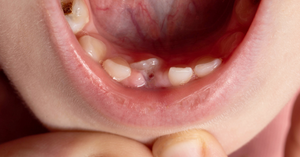The overuse of antibiotics is a growing crisis for parents worldwide, as it poses significant health risks not only to their children but also to the broader community. With the alarming rise in antibiotic resistance, parents are increasingly aware of the fragile balance between effectively treating bacterial infections and the potential consequences of misusing these powerful medications. This blog discusses the concept of antibiotic overuse, its implications, and actionable steps parents can take to safeguard their children’s health.
The Growing Concern about Antibiotic Overuse
Antibiotics have been hailed as one of the most significant medical advancements, effectively treating bacterial infections and saving countless lives. However, their overuse has led to a troubling trend: the emergence of antibiotic-resistant bacteria.
According to the Centers for Disease Control and Prevention (CDC), at least 2.8 million antibiotic-resistant infections happen in the United States each year, resulting in over 35,000 casualties. This statistic underscores the urgency of addressing antibiotic overuse, particularly in children, who are often prescribed these medications for infections that may not require them.
Understanding Antibiotic Overuse
Antibiotic overuse occurs when these medications are prescribed unnecessarily or when patients do not complete their prescribed courses. This misuse can lead to several adverse effects, including:
- Gastrointestinal Distress: Common symptoms include nausea, vomiting, and diarrhea, which occur as antibiotics disrupt the natural balance of gut bacteria.
- Allergic Reactions: Some children may experience allergic reactions ranging from mild rashes to severe anaphylaxis, which requires immediate medical attention.
- Organ Damage: Prolonged or excessive use of certain antibiotics can lead to damage to vital organs such as the kidneys and liver, particularly in cases of overdose.
- Antibiotic Resistance: The most significant concern is the development of antibiotic-resistant bacteria, which can render standard treatments ineffective and lead to severe health complications.
Signs of Antibiotic Overuse
Parents should be vigilant for signs that their child may be experiencing the effects of antibiotic overuse. These signs include:
- Persistent gastrointestinal issues such as diarrhea or vomiting.
- Unexplained allergic reactions, including hives or difficulty breathing.
- Symptoms of a secondary infection, such as a yeast infection, which can occur when antibiotics disrupt the natural flora of the body.
Cases of Antibiotic Overuse
Antibiotic overuse can occur in various scenarios, including:
- Misdiagnosis: When a healthcare provider prescribes antibiotics for viral infections, like colds or the flu, which do not respond to these medications.
- Incomplete Courses: Parents may stop giving antibiotics once their child feels better, which can lead to a revival of the infection and contribute to resistance.
- Sharing Medications: Parents sometimes give leftover antibiotics from previous prescriptions to their children, which can be inappropriate and dangerous.
Preventing Antibiotic Overuse
To prevent antibiotic overuse, parents can take the following steps:
- Consult Healthcare Professionals: Always seek medical advice before administering antibiotics. Ensure that the prescribed medication is necessary for the specific infection.
- Complete Prescribed Courses: Encourage children to complete the entire course of antibiotics, even if they start feeling better before finishing the medication. This practice helps eliminate the bacteria completely and reduces the risk of developing resistance.
- Educate on Proper Use: Teach children the importance of using antibiotics responsibly and the dangers of sharing medications.
- Monitor for Side Effects: Be aware of possible side effects and seek medical attention if extreme reactions occur, such as difficulty breathing or persistent gastrointestinal issues.
- Promote Good Hygiene: Encourage regular handwashing and vaccinations to prevent infections, thus reducing the need for antibiotics.
Conclusion
The overuse of antibiotics is a serious problem that demands urgent attention from parents and healthcare providers alike. By understanding the dangers associated with antibiotic overuse, recognizing the signs of misuse, and implementing preventive measures, parents can play a critical role in safeguarding their children’s health and contributing to the fight against antibiotic resistance. It is imperative to approach antibiotic use with caution, ensuring that these powerful medications are used judiciously and effectively for the benefit of all.








